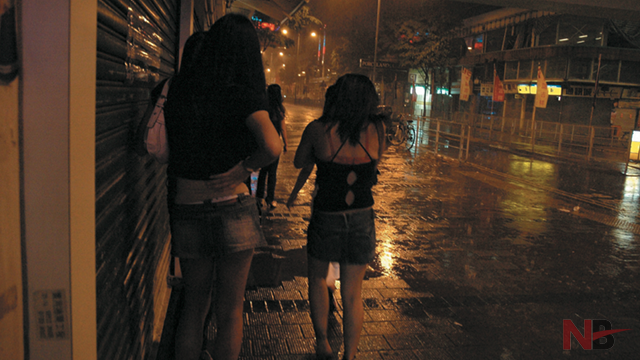140.000 modern Slaves in PH
 MANILA, Philippines – The Philippines ranked 98 in the inaugural Global Slavery Index, which listed countries based on the prevalence of modern-day slavery. The rankings, released by the Walk Free Foundation (WFF) on Thursday, October 17, is based on a "combined measure of three factors": prevalence of modern slavery by population; measure of child marriage; and measure of human trafficking in and out of the country.
MANILA, Philippines – The Philippines ranked 98 in the inaugural Global Slavery Index, which listed countries based on the prevalence of modern-day slavery. The rankings, released by the Walk Free Foundation (WFF) on Thursday, October 17, is based on a "combined measure of three factors": prevalence of modern slavery by population; measure of child marriage; and measure of human trafficking in and out of the country.
In this tally, the higher the ranking, the more prevalent modern-day slavery is in a country. In the case of the Philippines, it is found in the lower half of the rankings among 162 countries covered by the study. But when compared to its Asian neighbors, the Philippines ranked 12. The report estimated that there are 140,000 to 160,000 people enslaved in the Philippines, out of a total population of 96 million people. "Modern slavery is a significant concern for the Philippines, particularly due to the large numbers of Philippine nationals migrating overseas, predominately for work," the Index noted. "Reports suggest that Filipino migrants are vulnerable to modern slavery and have been subjected to forced labour and involuntary servitude in many industries, including domestic work and the sex industry, seafaring and maritime work, fisheries, agriculture, health care, engineering, construction and manufacturing," it said. The report also noted that enslavement within the country is a "significant problem." Particularly vulnerable are people migrating from rural areas to the large urban areas.
WFF noted that "despite stretched resources" the government is "making notable efforts" to combat modern-day slavery of Filipinos at home and abroad. These include anti-trafficking laws; support for overseas workers; being party to the international anti-slavery treaties; and programs to protect victims. The report noted, however, that corruption, which is usually connected to trafficking, is still rampant, and that the country has to to more in its efforts to end modern-day slavery. 30 million enslaved worldwide As globally ranked, the countries with the highest prevalence of modern slavery are Mauritania, Haiti, Pakistan, India, Nepal, Moldova, Benin, Ivory Coast, Gambia and Gabon. Moldova – once part of the Soviet Union – was the only European nation in the top 10. In terms of absolute numbers, however, the countries with the highest number of enslaved people are India, China, Pakistan, Nigeria, Ethiopia, Russia, Thailand, Democratic Republic of Congo, Myanmar and Bangladesh, according to the report. "Taken together, these countries account for 76% of the total estimate of 29.8 million in modern slavery," the report said. All in all, an estimated 30 million people around the globe are living in modern-day slavery, and 72% of them live in Asia. "The country with the largest estimated number of people in modern slavery is India, which is estimated to have between 13,300,000 and 14,700,000 people enslaved. The India country study suggests that while this involves the exploitation of some foreign nationals, by far the largest proportion of this problem is the exploitation of Indians citizens within India itself, particularly through debt bondage and bonded labor." The second highest in terms of absolute numbers of enslaved is China, with an estimated 2,800,000 to 3,100,000 in modern slavery, the report said. "The China country study suggests that this includes the forced labor of men, women and children in many parts of the economy, including domestic servitude and forced begging, the sexual exploitation of women and children, and forced marriage."
The country with the third highest absolute number in modern slavery is Pakistan, with "an estimated 2,000,000 to 2,200,000 people in modern slavery." The other side The other end of the list shows countries with the lowest prevalence of modern day slavery: Denmark, Finland, Luxembourg, Norway, Sweden, Switzerland, New Zealand, United Kingdom, Ireland and Iceland. Established in May last year, the WFF is a 20-strong team based in Perth on the Australian west coast, founded by philanthropists Andrew Forrest – the chairman of Fortescue Metals Group – and his wife Nicola. The foundation's definition of modern slavery includes slavery itself, plus slavery-like practices – such as debt bondage, forced marriage and the sale or exploitation of children, human trafficking and forced labor. It has the backing of former US secretary of state Hillary Clinton, Britain's ex-prime minister Tony Blair, current Australian PM Tony Abbott and philanthropists Bill Gates, Richard Branson and Mo Ibrahim.
